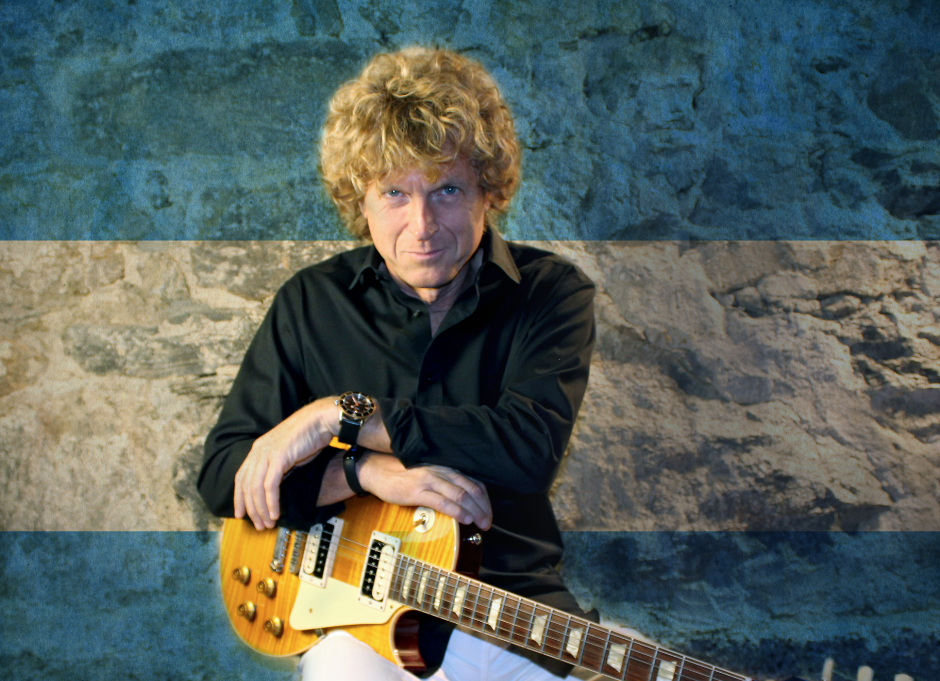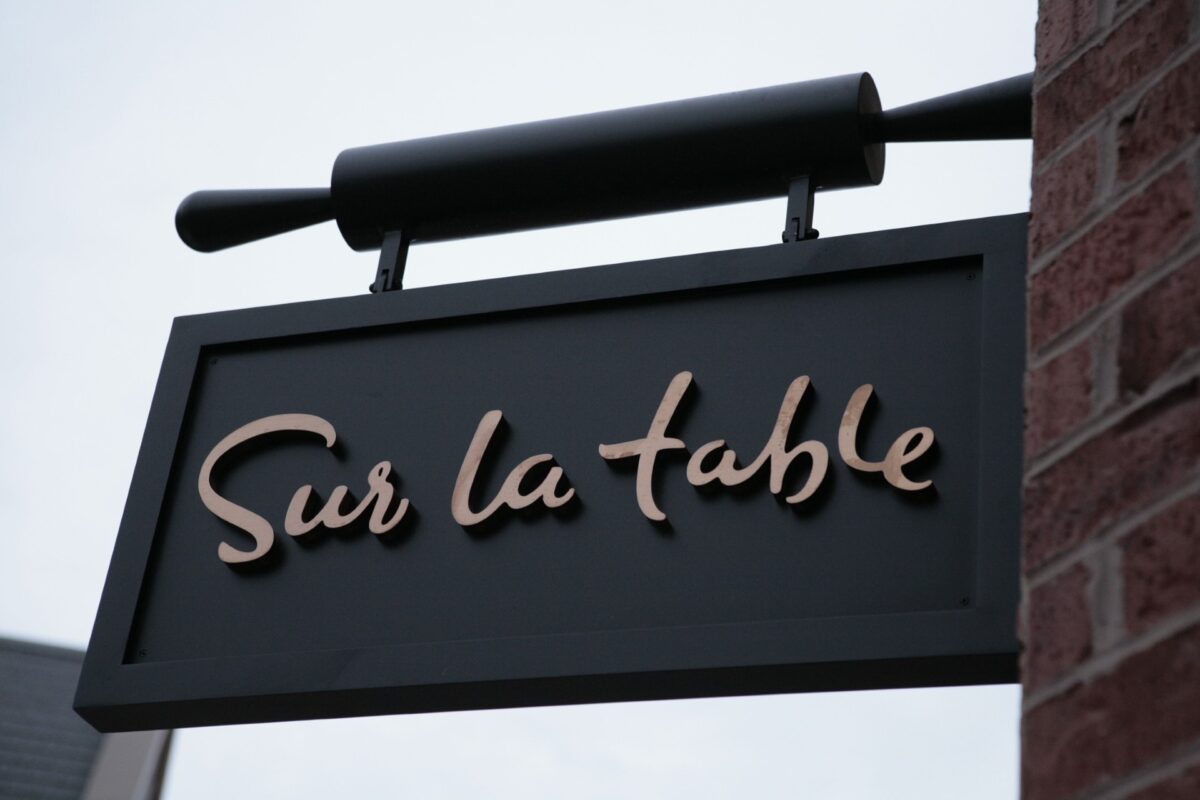For Paul Bessalo, an Argentine-born and -raised musician, a maritime chart in a Rye delicatessen turned out to be the map to his future.
Almost 20 years ago, Bessalo was casting about for a name for his new music school and store.
“My first choice was Paul’s Music,” he recalled. “I told my friends, and they said, ‘That’s horrible.’”

He was pondering alternatives at the deli when he saw a maritime map of Rye’s shore on a wall. There it was in the middle – Rock Island. Bessalo would name his business Rock Island Sound, playing on the island on the map, his background as a rock’n’roll studio and live musician, the Sound Shore and, of course, most important to him – the sound of music.
Six years later, Bessalo would open a second Rock Island Sound in Tarrytown, offering lessons in and selling virtually every kind of instrument.
“We are super busy,” he said. “We’re always in need of new instructors.”
There are 12 instructors to date who teach 120 area students ranging in age from “6 to 86,” Bessalo said.
“It’s never too late to learn,” he said. “You need desire and dedication. We all have busy lives. But the beauty of music is it can replace bad habits.” Instead of reaching for that extra cookie, reach for your instrument.
“When you’re a kid, you don’t think about it,” he added of the lack of self-consciousness with which children approach music lessons. They know they have to practice if they want to be part of the marching band or the school concert.
Adults are a bit different, having had more time to develop hang-ups, heavy workloads and distractions. But as Bessalo has said to students, if you’re only going to do something one day a week, you’re never going to be good at it. He’s a firm believer in practicing – understanding, of course, that genetics, talent and the age at which you begin lessons play a role in musical accomplishment. (Bessalo’s father was a classically trained musician.)
At first, Bessalo was doing it all – teaching piano, guitar and some voice, booking the lessons and selling the instruments. He now has a staffer at each location to handle booking and selling to go along with the instructors.
That frees him to concentrate on curriculum development so that there is continuity from teacher to teacher and lesson to lesson. He said he hopes to have the curriculum revised by the end of the year. Bessalo is also interested in growing the business, looking to franchise it.
“One of the things that has taken years is the transformation from an artist to a businessman,” Bessalo said. “It’s torturous.”
For years, he said, he worked “eight days a week,” to borrow from the Beatles song, “12 hours a day. You need a balance, a life.” One recent Sunday, he took the time to write a song. “It was a wonderful thing to do and feel expressive.”
The expressivity that music affords came to him at an early age in the land of the tango, to which his Italian grandparents immigrated in the early 20th century. Bessalo grew up in Rosario, the largest city in Argentina’s center-east province of Santa Fe, a municipality noted for its agricultural and lumber exports and a well-kept array of architectural styles that span neoclassicism to Art Nouveau and Art Deco.
Bessalo has a photograph of himself at age 3 with his father’s (unlit) pipe in his mouth, sitting at the piano. By age 8, he was studying the guitar and by 12, the piano, heading off to a conservatory for a complete classical education in sightreading, theory, composition and performance. “I’m glad I had that,” he said.
With a high school diploma and some university education, he immigrated to the United States to work as a professional musician. In 1998, he enrolled in Purchase College, State University of New York, which includes conservatories in various arts within its academic disciplines. There he earned his Bachelor of Fine Arts and Master of Fine Arts in classical composition.
But music wasn’t the only love born in his Argentine childhood. Bessalo is an ardent tennis fan and singles player, taking to country club clay courts there as well as the hard courts at the insurance company where his father worked. Indeed, the Port Chester resident, who lives on the water, plays once a day.
His favorite player of all time is the Argentine former world number two, lefthander Guillermo Vilas. (According to a number of tennis and math experts, Vilas should’ve been the number-one ranked player in 1977, when he won 16 tournaments, including two legs of the Grand Slam – the French and US Opens, for a remarkable 145-15 won-loss record. The Association of Tennis Professionals (ATP), the male players’ organization, has declined to revisit this. But Netflix hasn’t, exploring the controversy in the 2020 documentary “Guillermo Vilas: Settling the Score.”)
Bessalo sees a natural connection between tennis and music: “Of course. The racket has strings like a guitar or vocal cords. The guitar is shaped like a tennis racket. Timing and rhythm are key to both.”
He’s not the only one who sees that connection. (Watch Novak Djokovic at Arthur Ashe Kids’ Day at the recent US Open, strumming a tennis racket as if it were a guitar.) In the 1970s, a golden age for sports and culture, tennis was particularly golden, with Vilas joining Jimmy Connors, Björn Borg, Arthur Ashe, Ilie Nastase, Vitas Gerulaitus and a very young John McEnroe on the men’s side and Billie Jean King, Margaret Court, Evonne Goolegang and longtime rivals Chris Evert and Martina Navratilova on the women’s. McEnroe would form his own band and marry rocker Patty Smyth. Vilas, known as “the Bull of the Pampas,” could’ve been called “the Poet of the Pampas” as he wrote poetry and music, played guitar and performed in a jazz-rock band, although he set all this aside for his ground-breaking 1977 run.
One of the highlights of Bessalo’s life was meeting Vilas at the latter’s Buenos Aires club where the tennis star complimented the musician on his backhand.
“He’s a Renaissance Man,” Bessalo said of Vilas. Clearly, it takes one to know one.
For more, visit rockislandsound.com.




















